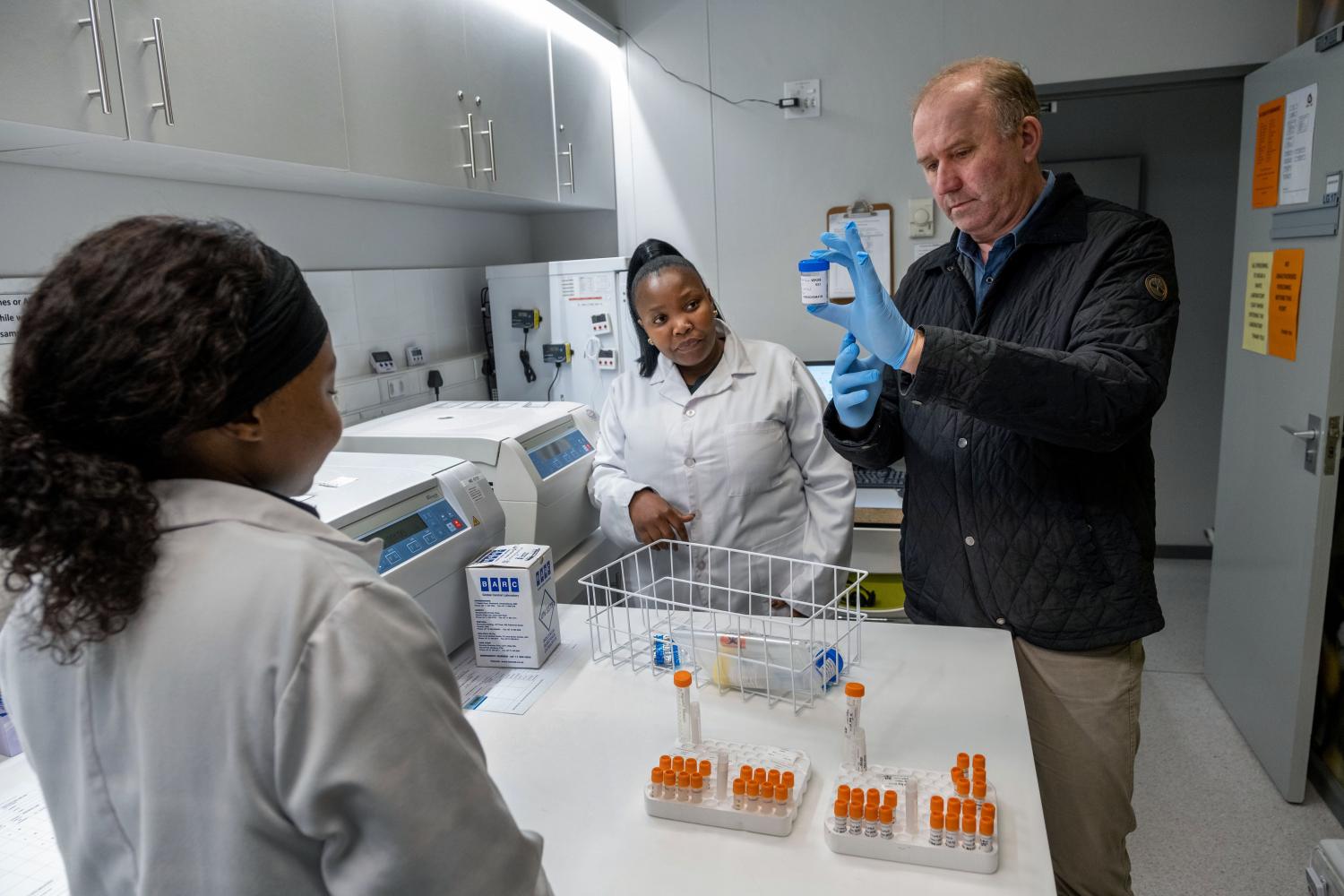An international team of investigators today announced promising data from a trial of a novel antibiotic that could potentially shorten and simplify treatment for tuberculosis (TB) patients.
The interim data from the phase 2 trial, released yesterday at the Union World Conference on Lung Health in Copenhagen, show that sorfequiline (TBAJ-876) had greater activity against drug-susceptible TB than existing treatments at 8 weeks, with a favorable safety profile. The trial was the first test of sorfequiline, a second-generation diarylquinoline antibiotic, in people.
Trial investigator Maria Beumont, MD, of TB Alliance, which has been developing the drug since 2014 and conducted the trial, said the results provide enough evidence to move to a phase 3 trial. She added that they also confirm researchers' belief that sorfequiline has the potential to shorten treatment durations for both drug-susceptible and drug-resistant forms of the disease, which sickened an estimated 10.7 million people in 2024.
"We have a vision of a very short treatment down the line, and this is the very first step to get to that," she told CIDRAP News.
Higher rates of sputum conversion at 8 weeks
The randomized controlled trial, conducted in South Africa, the Philippines, Georgia, Tanzania, and Uganda, involved 309 participants with newly diagnosed drug-susceptible TB.
Participants were equally randomized to five treatment arms: HRZE (isoniazid, rifampin, pyrazinamide, and ethambutol), BPaL (bedaquiline, pretomanid, and linezolid), and SPaL (sorfequiline, pretomanid, and linezolid) with three different dose levels of sorfequiline (25, 50, and 100 milligrams [mg]). The primary endpoint was sputum conversion—a measurement of TB treatment efficacy—at week 8.
HRZE is the standard first-line regimen recommended for drug-susceptible TB by the World Health Organization. Treatment typically lasts 6 months and involves multiple daily pills. The BPaL regimen, recommended for drug-resistant TB, also lasts 6 months but is a significant improvement over the previous regimens for drug-resistant TB, which lasted 18 months.
We have a vision of a very short treatment down the line, and this is the very first step to get to that.
Sorfequiline and bedaquiline are in the same class of antibiotics, but Beumont said data from earlier preclinical and in vitro studies suggest sorfequiline could be an improvement.
"It's more robust, and we think, overall, it's going to be better tolerated," she said. In addition, it's demonstrated the potential to treat the emerging strains of TB that have become resistant to bedaquiline.
At week 8 of the trial, the proportion of participants with sputum conversion was 59% in those who received SPaL with 100 mg of sorfequiline, compared with 45% in the HRZE arm and 45% in the BPaL arm. The hazard ratios for sputum conversion at week 8 with SPaL with 100 mg of sorfequiline versus BPaL and HRZE were 1.53 and 1.35, respectively.
"It's a very good indication of the fact that the treatment is more efficacious, because it's bringing the burden of Mycobacterium down faster than the other treatments," Beumont explained. "This is an indication of efficacy or robustness, but also of the potential to shorten treatment."
The results also showed that the safety profile of SPaL was comparable to HRZE. And participants in the SPaL arms responded well to the regimen, which involves only three daily pills.
"The treatment was amazing," trial participant Thuto Pulane said in a TB Alliance press release. "It was shorter and easier than I expected."
1 month of pills
TB Alliance says it plans to launch a phase 3 trial that will test SPaL in both drug-susceptible and drug-resistant TB patients. If that trial is successful and sorfequiline is ultimately approved, Beumont said the hope is that treatment duration could be shortened to 4 months—a month of oral treatment followed by a long-lasting injectable form that TB Alliance plans to explore, which would provide 3 months of coverage until the disease is fully eradicated.
"But from the patient's perspective, it would only be 1 month worth of pills," she said.
There's also hope that SPaL could eventually be a universal treatment given initially to all patients when they test positive for TB, rather than waiting for tests to determine whether they have drug-susceptible or drug-resistant TB and then get started on an appropriate therapy. In some low-resource settings, it can take weeks to get results on sputum samples and other diagnostic tests used to identify the TB strain or resistance profile.
KJ Seung, MD, a TB researcher and assistant professor of medicine at Brigham and Women's Hospital in Boston who was not involved in the trial, said that while we still need to see the full results, the interim data are encouraging for doctors and TB patients.
"We didn't have any new drugs for so long, and TB drug resistance has become a major problem, so it's nice to see a more robust pipeline of new TB drugs," he said.

























